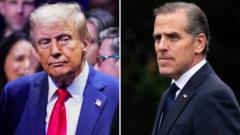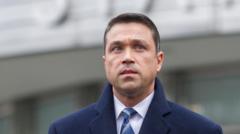The investigation into the sanctioned Russian oligarch’s financial dealings uncovers evidence suggesting substantial tax liabilities due to the management of offshore investments from the UK, with implications for millions in public funding.
Roman Abramovich's Potential £1 Billion Tax Bill Revealed Amid Chelsea FC Ties

Roman Abramovich's Potential £1 Billion Tax Bill Revealed Amid Chelsea FC Ties
UK authorities may seek recovery of up to £1 billion from Roman Abramovich for tax avoidance stemming from hedge fund investments linked to his ownership of Chelsea FC.
Sanctioned Russian oligarch Roman Abramovich could face a staggering tax bill of up to £1 billion in the UK, following revelations of a failed scheme to evade taxes related to his hedge fund investments, as exposed in a comprehensive investigation by the BBC and the Bureau of Investigative Journalism (TBIJ). The revelations stem from a cache of leaked documents indicating that $6 billion (£4.7 billion) was funneled through companies based in the British Virgin Islands (BVI). However, it appears these investments were primarily managed from within the UK, which raises the question of appropriate taxation.
The investigation ties Abramovich's hedge fund dealings back to his former ownership of Chelsea FC, with claims that funding for the club can be traced to the entities involved in the alleged tax avoidance scheme. Abramovich's legal representatives assert that he consistently sought expert tax and legal counsel and claim he cannot be held accountable for any unpaid taxes, emphasizing that he lacked knowledge of such obligations.
Labour MP Joe Powell, leading a Parliamentary initiative on equitable tax practices, has urged HM Revenue and Customs (HMRC) to promptly investigate this case, stressing the potential funds could greatly benefit public services.
Central to the investigation is Eugene Shvidler, who served as a director for Chelsea FC and is closely linked to Abramovich. Shvidler’s role in the UK, where he resided until 2022, raises significant red flags as it appears he was instrumental in the oversight of these investments. A tax specialist noted that Shvidler's involvement while residing in the UK introduces the possibility that profits from these companies ought to be subject to UK taxation.
Shvidler's legal team contested the validity of the case made by the BBC, suggesting that the reporting misrepresents the details of their business affairs. The ongoing documentation review forms part of a larger investigation dubbed Cyprus Confidential, which seeks to uncover the financial dealings linked to figures associated with the Putin regime.
The leaked data reveals that a significant portion of Abramovich's wealth—accumulated through controversial deals dating back to the 1990s—was utilized to create Keygrove Holdings Ltd, which then invested in various international hedge funds. While the BVI is known for tax-advantaged structures, any decisions made in the UK could trigger HMRC tax obligations.
Adding to the complexity, public funds could be on the line as past loans from Abramovich's untaxed profits have been directed toward Chelsea FC, particularly during successful seasons. Should HMRC initiate an inquiry, the financial repercussions for Abramovich could be monumental, dwarfing previous tax responsibilities levied against notable business figures.
The British government's reaction following Russia's incursion into Ukraine allowed Abramovich to sell Chelsea FC under stipulations that £2.5 billion of the proceeds be donated to charities aiding Ukrainian victims. However, a frozen bank account still holds these funds as disagreements regarding distribution persist, indicating a need for resolution on several fronts.
The Cyprus Confidential investigation reflects a broader inquiry into the links between international business practices and financial implications for public and humanitarian needs amid tumultuous geopolitical events.















